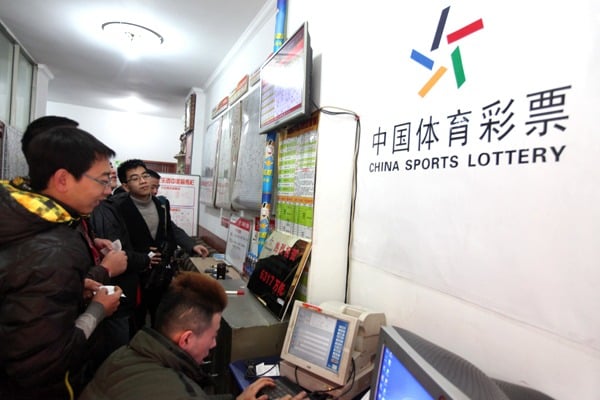Chinese Government Announces Harsher Punishment for Online Lottery Sales Just Days After Admonishing Apple Over Gambling Apps
Posted on: August 22, 2018, 06:00h.
Last updated on: August 22, 2018, 05:20h.
In China — where most gambling is illegal — the government is taking more and more austere measures to curb the popular activity among its citizens. But online gambling in particular is proving to be the most challenging to contain for Chinese authorities.

On Tuesday, Chinese leaders announced plans to “severely crack down on any form of illegal business activities, such as online private lottery and online gambling conducted in the name of lottery tickets,” according to a prepared statement released by the country’s Ministry of Finance.
Twelve total departments signed off on the proclamation, indicating there will be stiffer penalties for violators than in previous policies.
Enterprises or individuals who use the Internet to sell lottery tickets in addition to restricting or prohibiting participation in the production and operation cooperation of lottery institutions in accordance with regulations, if the circumstances are serious, are classified as serious acts of dishonesty, and are included in the national credit information sharing platform and the national enterprise credit information publicity system,” the announcement stated.
Gamblers in China often get their fix through one of the two state-run lotteries. Proceeds of the so-called “welfare lottery” are used to benefit the country’s elderly and disabled population. The sports lottery gives players the opportunity to pick the outcome of professional soccer contests, and is the second-largest lottery in the world, according to Forbes.
But gamblers are only allowed to buy their tickets the brick-and-mortar way. Online ticket sales for the China’s welfare and sports lotteries have been prohibited since 2015 as a way to combat fraud, the government insists.
Biting Down on Apple
Earlier this month, the government spoke out against tech giant Apple Inc., saying the company did not adhere to Chinese content bans and accusing the monster tech provider of allowing the distribution of gambling apps through its App Store.
Shortly after, Apple removed 25,000 gambling apps from the Chinese version of its store.
“We have already removed many apps and developers for trying to distribute illegal gambling apps on our App Store, and we are vigilant in our efforts to find these and stop them … ” a statement from Apple declared.
Power Play
The continued attempts to control what Chinese citizens can and cannot access on the internet could be a prelude to larger plans that the country’s government is mapping out.
The Economist reported earlier this year that President Xi Jingping wants to turn China into a “cyber superpower,” capable of leading the world in artificial intelligence and quantum computing. The report also states that China is home to 202 (35.4 percent) of the world’s supercomputers.
Before this year’s World Cup, Chinese authorities proactively removed hundreds of gambling websites from the internet. That move caused bettors to migrate to WeChat, a mobile messaging platform hosting a billion monthly users. In response, the government subsequently deleted 50,000 WeChat accounts and 8,000 group chats that were involved in World Cup betting.
Related News Articles
PhilWeb Receives Provisional License to Resume Operations in Philippines
FCC Plan to Repeal Net Neutrality Poses Threat to Online Gambling Industry
FCC Likely to Repeal Net Neutrality Rules This Week
Most Popular
Mega Millions Reportedly Mulling Substantial Ticket Price Increase
NoMad Hotel to Check Out of Park MGM on Las Vegas Strip
VEGAS MYTHS BUSTED: To ‘86’ Someone Was Vegas Mob Slang for Murder
Most Commented
-
End of the Line for Las Vegas Monorail
— April 5, 2024 — 90 Comments -
Mega Millions Reportedly Mulling Substantial Ticket Price Increase
— April 16, 2024 — 8 Comments -
Long Island Casino Opponents Love New York Licensing Delays
— March 27, 2024 — 5 Comments
















Last Comment ( 1 )
I want to now that technology to make more for export